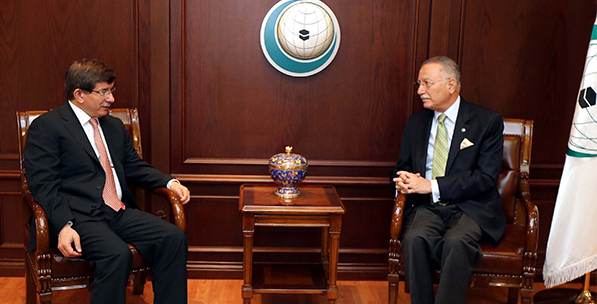Ahead of the presidential election in Turkey, candidates begin to challenge each other over foreign policy. The opposition's joint candidate, Ekmeleddin İhsanoğlu, seeks to capitalize on his foreign policy experience to criticize the Justice and Development Party's (AK Party) approach to Middle Eastern politics. At public events, he states that Turkey ought to refrain from "sectarianism" and adopt an "impartial" foreign policy in the Middle East. In a way, this criticism closely resembles the words of Republican People's Party (CHP) chairman Kemal Kılıçdaroğlu, who described the region as a "quagmire" in which, he claimed, the government was drowning due to its sectarian policies. İhsanoğlu's emphasis on impartiality, however, surpassed his earlier take on the Palestinian question as secretary-general of the Organization of Islamic Cooperation (OIC), as he explicitly said, "Turkey must be impartial about Palestine." Coming from the former secretary-general of an organization originally established over the Palestinian question, İhsanoğlu's words were particularly interesting. Obviously, the opposition candidate's emphasis on an impartial foreign policy complements the domestic debate around the president's impartial role and emerges as the opposite of Recep Tayyip Erdoğan's style as a politician and, possibly, as president. More important, İhsanoğlu fails to acknowledge that the president has always been a political office far from impartiality. From Mustafa Kemal Atatürk to Turgut Özal and Ahmet Necdet Sezer, Turkish presidents have been deeply involved in the nation's politics and played an influential role in addressing key issues. Sezer, for instance, emerged as the strongest opposition figure in the face of the AK Party government. And is an impartial foreign policy actually within our means today? Regardless of the country's next president and the ruling party, Turkish foreign policy reached new standards that entailed the government's pursuit of an active foreign policy and regional challenges.
Over the past decade, the AK Party gradually transformed the Kemalist notion of "passive foreign policy" to maintain that securing the country's border required more than stationing troops near the borders. Thus, the government's "new foreign policy" promoted integration between Turkey and its neighbors on the basis of mutual economic interest, which marked an irreversible development. Obviously, what kind of active foreign policy Turkey should adopt remains up for debate: Given the chaos that the Arab Spring triggered in the Middle East, for instance, the country could not possibly stick to "zero problems with neighbors" even if it wanted to, since the region experienced a short-lived period of democratization followed by a counter-revolutionary wave. In this context, Turkey opposed the Assad regime bombing Syrian citizens and Nouri al-Maliki's sectarian policies in Iraq. Since election talk has blurred the divide between domestic politics and foreign policy, however, public debate about political polarization occasionally turns to the government policy on Syria and Iraq. Opposition parties criticize the AK Party's position against the Syrian civil war and the military coup in Egypt, among others. But that criticizing the AK Party's foreign policy and emphasizing impartiality represent a genuine alternative, however, I find rather hard to believe. Sooner or later, Middle Eastern realities will compel the proponents of impartiality to side with one group or another. Perhaps, though, it would be best for the opposition to leave aside talk of impartiality and being above politics to make room for action and viable alternatives.
[Daily Sabah, 10 July 2014]









